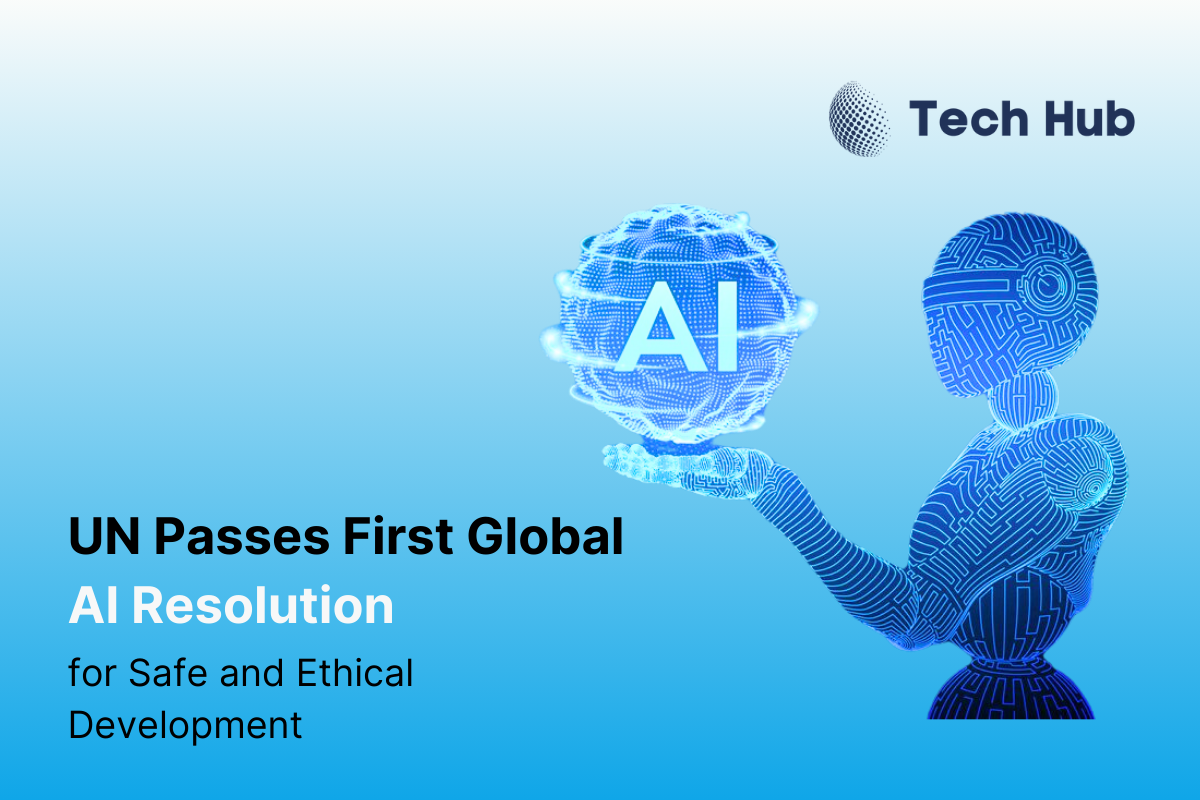
In a historic decision, the United Nations General Assembly on March 21, 2024, unanimously passed its first ever global resolution concerning artificial intelligence (AI). This innovative resolution looks to create global standards and norms to ensure the development of AI technologies that are safe, secure, and trustworthy worldwide.
With over 120 countries being its co-sponsors, the 8-page resolution makes a huge breakthrough in AI international governance. It calls for member states and stakeholders to give the highest priority to human rights and fundamental freedoms during the development and deployment of AI systems.
The resolution also encourages nations to prevent AI from being employed in areas that violate international human rights laws, emphasizing the importance of ethics as one of the key principles that help preserve human rights in an environment where AI continues to expand.
Key aspects include:
Raising public awareness: Promoting a deeper understanding within the global population about the capabilities and risks associated with AI.
Strengthening research and development: Encouraging increased investments and capabilities in AI research and development to drive responsible innovation.
Ensuring transparency and privacy: Safeguarding privacy and ensuring transparency in AI systems are important to enhance trustworthiness and accountability.
Addressing bias and diversity: Addressing issues of bias and diversity in the datasets and algorithms to prevent exacerbating existing biases.
Additionally, the resolution highlights the need for global collaboration and knowledge transfer. Through this, the AI for Good Global Summit instigates the formulation of national policies and regulations on ethical AI development and operation, noting that UN Agencies should provide technical support for countries lacking relevant skills.
Jake Sullivan, the US National Security Advisor, hailed the resolution as a “comprehensive vision for how countries should respond to the opportunities and challenges of AI.” He stated, “It lays out a path for international cooperation on AI, including to promote equitable access, take steps to manage the risks of AI, protect privacy, guard against misuse, prevent exacerbated bias and discrimination.”
The adoption of this groundbreaking resolution by the UN has proven that a significant stride has been taken in the formation of a multilateral framework for the responsible and ethical development and use of AI technologies. This resolution is foreseen as a guiding principle that will be followed by nations and other stakeholders as Artificial intelligence permeates every aspect of society. An international collaboration that promotes the positive potential of AI will be invaluable.
